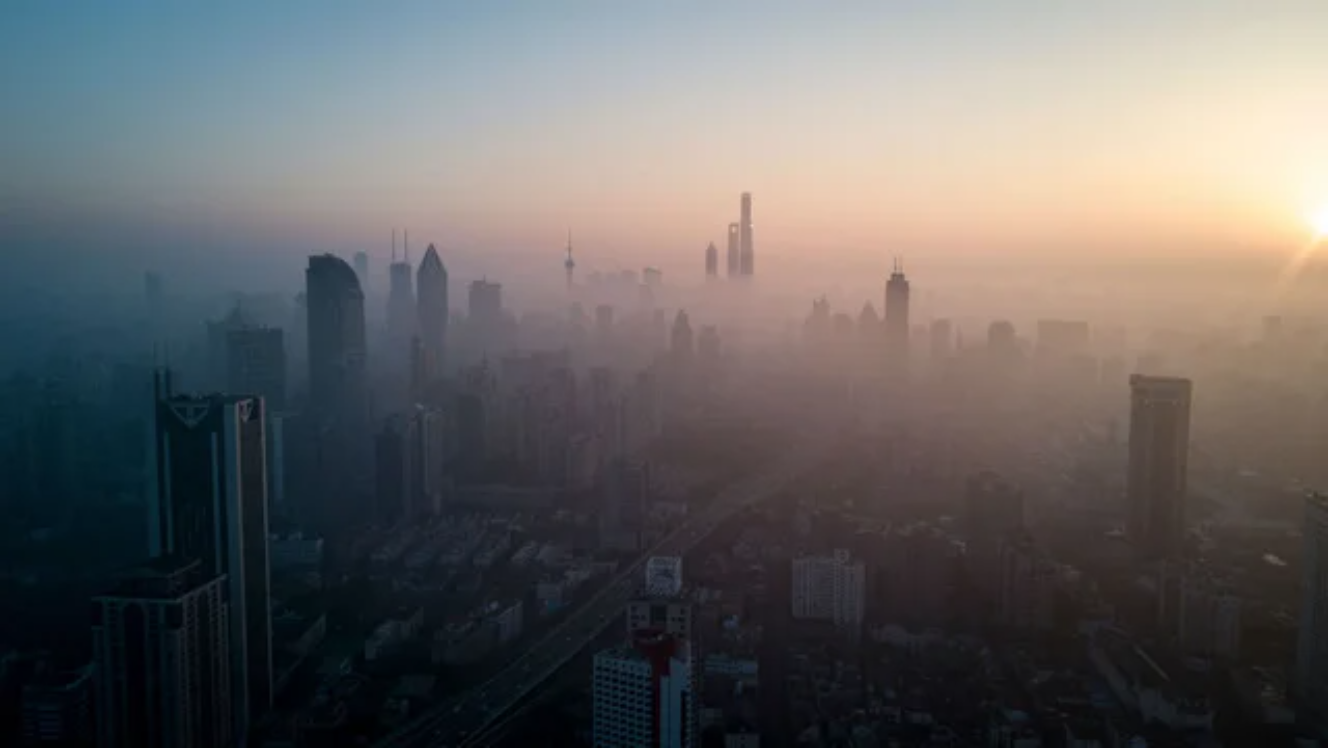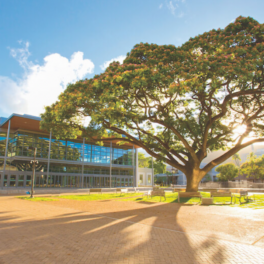Needed: economic development that does not destroy nature
 Credit: Getty Images via The Hill
Credit: Getty Images via The Hill Chip Fletcher, SOEST Associate Dean for Academic Affairs, recently published an article in The Hill outlining the critical juncture humanity is facing with respect to climate change and he shared a set of recommendations to guide more sustainable economic development and improve human equality. An excerpt from the article is below.
Economic development has provided humanity with increased life expectancy, access to education, a decent standard of living and more. However racial, wealth and gender inequality persist (1.3 billion live in poverty, 700 million are hungry and 1 in 3 women experience gender-based violence). A set of sustainable development goals has been defined and are coming to represent a global standard for economic reform.
Development is still largely powered by greenhouse-gas emitting fossil fuels, which provided nearly 85 percent of global energy consumption in 2019. As the world emerges from the current recession, fossil fuel use and renewable energy capacity are both projected to surge. Primary energy consumption from renewables is growing exponentially, but has been too low to offset the growth in fossil energy consumption.
Global warming has climbed about 1.3 degrees Celsius since the late 19th century. Climate change increases the chance of weather extremes, negatively affects food and water security, creates a vicious cycle of social inequality, and weakens ecosystems, many of which are already stressed by human impacts.
The 2015 Paris Agreement legally binds nations to increasingly ambitious climate action in order to limit warming to well below 2 degrees Celsius, preferably to 1.5 degrees. However, the remaining carbon budget of allowable emissions to stop warming at 1.5 degrees is small (6 to 11 years at current emissions for a 50 percent chance of not exceeding 1.5 degrees), with a 17 percent chance that it has already been exceeded.
Stabilizing the climate at 1.5 degrees requires cutting carbon dioxide emissions by about 50 percent (relative to 2010 levels) by 2030 and reaching net zero emissions around 2050. Cuts this rapid and deep demand transformational change in the energy, transportation and building sectors.
However, while cutting emissions is necessary, it is not sufficient. We need economic development that does not destroy nature.
The ultimate drivers of biotic destruction are human overpopulation, continued population growth and overconsumption, especially by the rich. These drivers – all of which trace to the fiction that perpetual growth can occur on a finite planet – are themselves increasing rapidly.
The solutions for preserving nature begin with recognizing that the benefits generated by healthy and productive land are a global good that provide critical services and help with solving climate change.
The U.N.E.P Synthesis Report “Making Peace with Nature” provides a number of recommendations.
- Governments should identify and develop the fastest and deepest options for integrating climate change-biodiversity protection-human equality-and economic development in all programs and policies. Agencies must take a leading role by integrating the goals of de-carbonization, regenerative soil management and biodiversity protection into all types of policies including permitting, capital budgets, restoration and replacement of infrastructure, decision-making, and subsidies. Monetize natural capital and the benefits that people get from nature in national accounts and measures of economic performance. Promote sustainable agriculture and fisheries to help feed the world’s growing population using less land and ocean resources. Shift subsidies away from sectors that cause land degradation, and toward sectors that emphasize sustainable resource production.
- Financial organizations should align lending and investment practices with biodiversity conservation. Assign value to ecosystem restoration and sustainable agriculture, practices that promote net-zero emissions and develop attractive financial products for investors that want to fund the protection of nature. Halt financing for fossil fuels and invest in electrification, efficiency and digitization of the energy sector.
- Commercial entities should adopt the principles of a circular economy to minimize waste, resource depletion and plastics; commit to certified and traceable supply chains that are sustainable and deforestation-free, including for agricultural commodities. Assess the environmental and social risks of all projects, products and investments, including their impacts on natural capital.
- Individuals must commit to buying goods and services that minimize waste of food, water, energy and materials; for instance, by changing habits and improving efficiency at home, at work and when traveling. Exercise voting and other civic rights to foster sustainable social norms and behavior and hold other actors accountable. Eat lower on the food chain with a more plant-based diet.
Humanity requires a habitable, resource-rich planet on which to thrive. Demand for energy and resources has been growing as a result of population growth and increased consumption to the point where scientific evidence suggests we are bumping up against fundamental planetary limits.
It will take cross-cutting, interdisciplinary, transformative change with a keen focus on decarbonizing, biodiversity protection and human equality – in all sectors of the economy–if we hope to see past benefits of economic development continue in the future. We need economic development that does not destroy nature.
Read the full story on The Hill.




